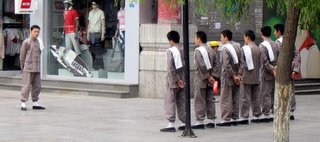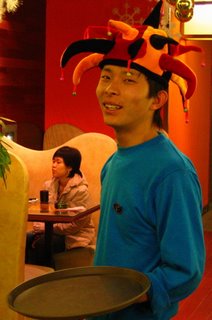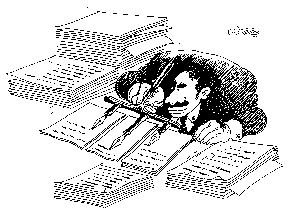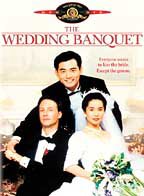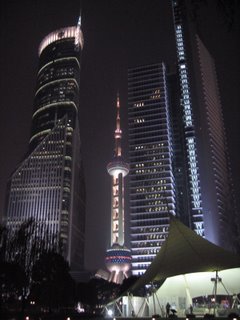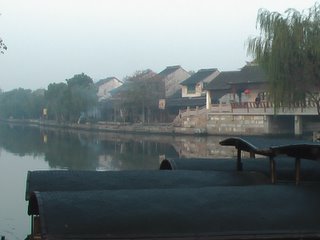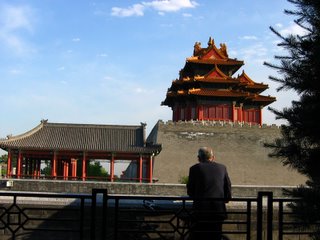
Let’s say Mr. And Ms. Lee had been friends of your family for a long time, maybe since when you were born. Maybe you had been their only son’s best friend since high school, the two of you having gone to college, then to the US together. Let’s say that Mr. Lee’s son hated to visit China, because he hated the rotten Chinese family he had. So every time you went back to Beijing, you would visit Mr. and Mrs. Lee out of sympathy. And every time, they would tell you the same old stories like to their own son,to which you would try in vain to find a response…
Mr. Lee was born in the 1940s when the Japanese armies were still galloping over China. His hometown in the deep southwest escaped the bombing, and he grew up in the relatively peaceful countryside with three sisters and two older brothers. His mother passed away when he was little but his step-mother was kind. His family was poor but not starving like many of their neighbors. They had a small parcel of land on which the family worked hard. Most families in Mr. Lee’s village shared the same last name as they all descended from a big family that the Qing government force-migrated from Hubei province in the early 1700s.
After the liberation in 1949, the farming village rode through numerous political movements. The peasants were classified on the scale of poor, mid-level and rich peasants and, the most despised, landlords (in the cities, the classifications were workers, intellectuals, and cadres). The local communist-party officials branded Mr. Lee’s family as mid-level peasants, but in the late-fifties changed it to rich peasants. Mr. Lee’s family, once considered class-neutral, became slightly anti-revolutionary. However, at least they were not labeled landlords. There’s one family in the village that had some extra land and hired other peasants to work on it. They worked hard themselves and paid their hired hands fair. But during land reform the head of the family was executed and the wife and the kids lived on with nothing to their names.
Mr. Lee grew up well protected by the family. The youngest and the only one smart enough to go to high school, the whole family pinned their hope on him. He would be the one bringing honor to the ancestors and the family. He had the least amount of household chores. Sometimes after school he had to feed the chickens or walk the water buffalo. He would read textbooks on the back of the water buffalo as the animal swaggered its way along rice fields.
When Mr. Lee passed the college entrance examination in 1958, it was great joy to the entire village. Finally a college student from the village. Finally the Lee family had a good son that made them proud. Mr. Lee packed the small bag of his and went to Beijing to attend a tech university. His third brother, the one closest to him, gave him a fountain pen, a luxury item he had never had and cost a fortune in those days, especially to a peasant. His whole family told him – we cannot support you financially that much since you’ll be living in the big city; but no matter how hard, remember the family is behind you, supporting you; no matter how hard, finish college and make the family proud.
So Mr. Lee worked hard. He didn’t have to pay tuition, but he had to scramble to pay for his living expenses. His brother-in-law, the husband of his oldest sister, sent him 5 kuai a month, a handsome amount in those days. Books were luxuries. Food was luxury. In 1959 during the great leap forward they were starved as the rest of the country. For a long time they had only a meal a day. The memory of hunger stayed with Mr. Lee. Even nowadays he would save every leftover from every meal.
After graduation he was assigned to work as an engineer at a migrating construction company. He had a few happy years. He made a small salary out of which he would send home some. He loved sports, especially basketball. Then it came the time for him to get married. A country boy like him wanted very much to marry a pretty city girl.
In 1966 the Cultural Revolution started. In 1967 he met the future Mrs. Lee.
Mrs. Lee was also born in a village in the 1940s. But her father went to Beijing and got a job as an accountant. He established himself there. When Mrs. Lee was 12, he moved the entire family to Beijing.
Mrs. Lee’s mother had two more girls after moving to the city. But Mrs. Lee remained her dad’s favorite. He would go to school to pick her up and carry her home on his back, even when she’s already a teenager. Even though financially her family only got by, she grew up a proud city girl.
After high school Mrs. Lee got a job working as a low-level clerk at the construction company. When Mr. Lee courted her, she hesitated – she’s beautiful and had many suitors; he’s handsome and had a rare college degree, but he’s from the countryside. A peasant. A laborer. Probably with a big extended poor family that’s siphoning all his money away.
Many counseled against their relationship. Their family backgrounds were different – her from a worker’s family, him a rich peasant, borderline class enemy. But there’s chemistry between the two, and he was nice to Mrs. Lee’s family. He appeared to be a dependable man, Mrs. Lee thought. So She married him.
Alas, that was the end of the happy stories. Let’s say Mr. Lee would tell you, sighing.
After the marriage, Mr. Lee slowly found out that Mrs. Lee had a strange and explosive temper. It’s in the family, he suspected, witnessing how Mrs. Lee’s mother treated her father. Mrs. Lee, like her mother, was diligent and hard-working at making the tiny nest clean. But she’s also turning into her mother, controlling, exacting and wanting her way or no way.
No no no. Let’s say Mrs. Lee once told you when you were with her alone. That’s not true, she said. Alas, how I wish I could talk to my own son who lived so far away now, she would sigh. Let’s say Mr. And Mrs. Lee treated you as their son because they needed someone to tell their stories to, in their fading days. You suddenly remembered that their son once told you - he ran away from all the stories to keep his sanity.
Mrs. Lee told you that it had been all because of Mr. Lee. He’s the only one that had hurt her in her life. It all happened the day she went to get a abortion. That was before your best friend, their son, was born. Mrs. Lee left your friend’s sister, their one-year –old daughter, to the care of Mr. Lee.
She went to have the abortion, alone.
When she got back home, she found her daughter had pooped and now crying in bed. Mr. Lee had left their daughter to the care of an inexperienced teenager who then went out to play.
Like all young men in those days, Mr. Lee liked to play, especially basketball. That day, he went to play basketball.
Mrs. Lee was furious. She went to the basketball court and screamed at her husband. How could you let me go have an abortion alone and leave the daughter crying in bed with a wet diaper? She screamed hysterically at her husband.
Then he hit her. Let’s say when Mrs. Lee told you that, she was still seething with anger. That’s when I said to myself, she said, that I would make life miserable for him for the rest of his life.
Let’s say you took a look at Mr. Lee, the timid and skinny and quiet Mr. Lee. You could not believe he could have hit anyone. But let’s say he’s quiet. He didn’t protest.
Let’s say on the most recent trip, you visited them again and took a walk with Mr. Lee along the river. It would be summer and the weather would be humid and the willows would sway with much difficulty. Let’s say Mr. Lee walked slowly by you, and he would sigh, again and again.
They were retired now. They spent most of their time inside their apartment, cleaning. Mrs. Lee wanted her apartment sparkling clean. She covered everything with plastic. The furniture needed to be wiped everyday. The floors needed to be mopped everyday. And the clothes needed to be changed and hand-washed everyday. Mr. Lee was directed by Mrs. Lee everyday to do these household chores. And cooking. He only had a little free time at night, to watch a little basketball.
Their son was in America, far away, having his freedom. I hope he finds a nice girl, Mr. Lee said to you by the river.
Mr. Lee fought a lot with Mrs. Lee in the first few years of their marriage. I didn’t expect her temper to be like that; if I had know known, maybe… he hesitated. He said he stopped fighting with her after their son was born. He said he had thought about divorce. But he wanted his family to be together. Moreover, in those days, the party rarely approved divorces; those who succeeded usually had to gone through lengthy re-education process and carry a bad name for the rest of their lives.
So Mr. Lee gave up fighting. He wanted to save face. He didn’t want the neighbors to hear, the neighbors who always stuck their ears to any crevice on the walls (and there were many) to hear, and to gossip the next day.
But Mrs. Lee got only worse. She was a kind and hardworking woman. But she would scream whenever she couldn’t do things her way. She would comment loudly on others when it’s not her place to comment. Her high-pitched voice could be heard in the whole apartment building commanding everyone in the family.
That affected Mr. Lee at their work unit. He saw his peers, those with college degrees, got promoted one by one. He thought it was because of his family background, the slight-anti-revolutionary rich peasant label. He wrote repeatedly to the work unit’s party secretary to express his loyalty to the party. He wanted badly to be admitted into the party. He thought that’s the only way to get promoted.
Let’s say you remember your best friend once telling you about reading those letters which he had discovered by accident. Let’s say you remember him telling you that those letters were pathetic. That generation, that inexplicable red generation.
After the cultural revolution, Mr. Lee finally got accepted into the party. The work unit gave him a few chances to manage projects. He got promoted, but still at a much slower pace than their peers.
One day, he finally garnered enough courage and approached his manager. After much hesitation, the manager told him – it’s your wife; if you could not manage your home well, how could the work unit trust you with demanding work?
He was angry, angry at his wife. But the years of bottling up sealed the outlet of his anger.
The most heart-breaking, let’s say he would tell you, was actually not about the job. It’s about his family in the village. Mrs. Lee had forbidden Mr. Lee to be in contact with his own family.
How come? Let’s say you would be shocked.
One day, Mrs. Lee told you her version of the story – that when she was pregnant with the first child, Mr. Lee’s stepmother came to the city to help. But Mrs. Lee had to take care of her, with her belly huge, and go around buy cigarettes for her, because the traditions of the countryside demanded respect of the daughter-in-law to the mother-in-law.
Let’s say Mr. Lee would tell you the contrary - that when his step-mother arrived in the city, she carried eggs and fruits and gifts from family, in a huge basket on her own back. She tried to help out in her awkward countryside way which Mrs. Lee detested. Then Mrs. Lee got furious when Mr. Lee paid much attention to his step-mother, out of filial tradition, than to her.
From then on, whenever Mr. Lee contacted his family, Mrs. Lee would throw a fit.
From then on, whenever there’s relative visiting Mr. Lee from the village, Mrs. Lee would throw a fit. The relatives slowly stopped coming. Mr. Lee’s third brother would write him, repeatedly, asking why Mr. Lee was forgetting the family in the village.
When Mr. Lee’s father died, Mrs. Lee didn’t let Mr. Lee go back for the funeral. Granted, they were poor and there were too babies to feed. But it was my father! Let’s say you would see tears in Mr. Lee’s eyes. You let him continue.
When Mr. Lee’s step-mother had a stroke, Mr. Lee did get to visit her. The kids were grown and the family was more comfortable, financially. Three months after he returned to the city, she passed away. He didn’t get to attend the funeral because it would be a waste of money. Let’s say tears were now running down his face.
Now Mr. Lee was cut off from his family in the village. His daughter was a banker in Shanghai, his son an engineer in San Francisco. His third-brother sent him a family genealogy book. Neither his daughter or son cared for it. And now he couldn’t find it.
Mrs. Lee could have destroyed it.
Let’s say Mr. Lee told you that he felt so cut off. You couldn’t help asking – why? Why not…?
You hesitated. Your best friend had told you before that in college he had suggested divorce to Mr. Lee. The kids were grown then.
Let’s say Mr. Lee told you, after sighing, that Mrs. Lee had many physical problems. Who would take care of her if he leaves? She fainted easily. What if one day when she’s alone, she could faint and never wake up? But he longed so much to have some time to himself, to do what he wanted instead of cleaning and cooking everyday, and mostly of all, to visit his family before they would go away, forever.
Let’s say you looked at his teary eyes, you wanted to cry. Let’s say you would like to tell him about personal freedom, happiness and the courage to seek them all, the notions that the young generations grew up with. But you look around at all the marriages, all the personal struggles you know. You are old enough now to feel the weight of human stories and tell the complex of rotten situations, old enough to know that the same story is being replayed over and over all over China. What could you say?
Let’s say you desperately try to say or do something, to make their lives better, if only a tiny bit better, what would you do? What could you say?

